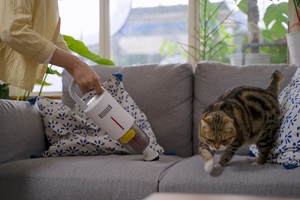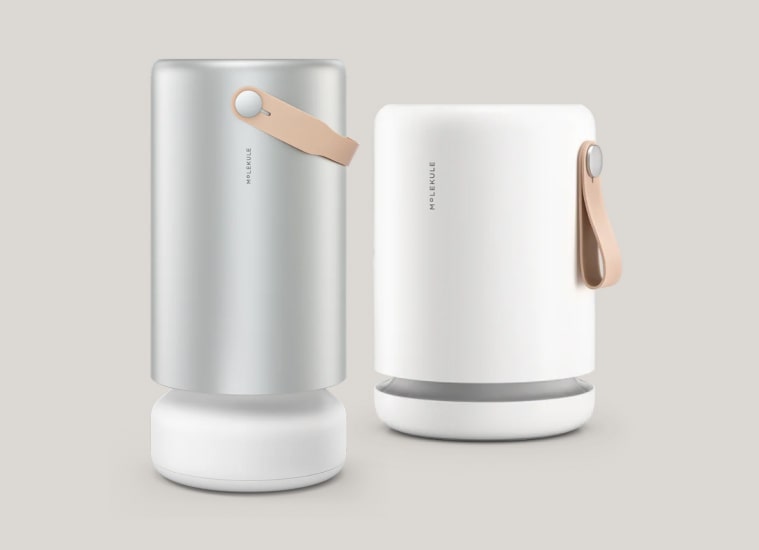Spring Cleaning with Allergies: How to Minimize Allergy Triggers While Tidying Up

Spring cleaning is an annual tradition that gives you the opportunity to refresh and declutter your home, but for those who suffer from allergies, it can also mean an increase in symptoms. The act of cleaning can stir up dust, pollen, mold, and pet dander—common allergens that trigger sneezing, itchy eyes, and congestion. However, with the right strategies, you can minimize these allergy triggers and still enjoy a fresh, clean home. In this blog post, we’ll share helpful tips for allergy sufferers to keep in mind while spring cleaning, so you can enjoy the benefits of a clean home without exacerbating your allergies.
Why Spring Cleaning Can Trigger Allergies
Spring cleaning involves getting into all the nooks and crannies of your home, which can stir up allergens that have settled in over the months. Here’s why it can be a challenge for allergy sufferers:
- Dust Mites: These tiny creatures thrive in warm, humid environments, especially in carpets, bedding, and upholstered furniture. When disturbed, dust mites can become airborne, triggering allergic reactions like sneezing and itchy eyes.
- Pollen: As the season changes, pollen from trees, grasses, and weeds fills the air. If you’re opening windows for ventilation during cleaning, you could be letting in high levels of pollen.
- Mold: Damp areas like bathrooms, basements, and kitchen corners can harbor mold, which can release spores into the air and aggravate respiratory symptoms for individuals with mold allergies.
- Pet Dander: Even if your pets are well-groomed, their dander can settle on surfaces and furniture. During spring cleaning, this dander can be stirred up and affect your airways.
While these allergens are unavoidable, there are ways to minimize their impact while getting your home sparkling clean.
How to Minimize Allergy Triggers During Spring Cleaning
1. Use a HEPA Vacuum Cleaner
A regular vacuum cleaner can stir up dust and allergens, making things worse for allergy sufferers. If you have allergies, invest in a vacuum cleaner with a HEPA filter. HEPA vacuums trap even the smallest particles of dust, pollen, and pet dander, reducing the number of allergens circulating in your home. Be sure to vacuum carpets, rugs, and upholstered furniture thoroughly, especially in high-traffic areas where dust accumulates quickly.
2. Dust with a Damp Cloth
Dry dusting can send allergens into the air, exacerbating allergy symptoms. Instead, use a damp microfiber cloth to dust surfaces. The dampness traps the particles, preventing them from becoming airborne. Dust all surfaces, including shelves, tables, and baseboards, and don’t forget areas that are often overlooked, such as window blinds and ceiling fans.
3. Clean Air Filters and Replace Them Regularly
Spring cleaning is a great time to check the air quality in your home. Replace air filters in your HVAC system, as they can become clogged with dust, pollen, and pet dander. Use high-quality filters with a HEPA rating to trap allergens more effectively. If you have an air purifier, clean or replace its filter as well to keep it running efficiently.
4. Keep Windows Closed During Pollen Season
While it’s tempting to open windows to let in fresh air, doing so during peak pollen season can lead to an influx of allergens. Pollen levels are usually highest in the early morning and late afternoon. To minimize exposure, keep your windows closed during these times, and consider using air conditioning with a clean filter to keep your home cool and allergen-free.
5. Wash Bedding and Upholstery
Bedding, pillows, and upholstery are notorious for collecting allergens. During spring cleaning, wash your bedding in hot water to eliminate dust mites and other allergens. Don’t forget to wash throw pillows and blankets as well. If your couch or chairs have removable cushions, vacuum them thoroughly or clean them with a fabric-safe vacuum attachment.
6. Use Allergen-Proof Covers for Pillows and Mattresses
If you suffer from dust mite allergies, investing in allergen-proof pillow and mattress covers can significantly reduce your exposure. These covers create a barrier between you and dust mites, preventing them from accumulating in your bedding. Be sure to clean these covers regularly according to the manufacturer’s instructions.
7. Tackle Mold in Damp Areas
Bathrooms, basements, and kitchens are common areas where mold can grow. Mold spores are a major allergen that can irritate the respiratory system. To prevent mold buildup, regularly clean damp areas with an anti-mold solution and ensure proper ventilation. If you find mold, use a cleaner with bleach or consult a professional if the issue is extensive.
8. Take Allergy Medications Before Cleaning
If you know that spring cleaning will trigger your allergies, consider taking your allergy medication beforehand. Antihistamines, nasal sprays, and decongestants can help reduce symptoms like sneezing, runny nose, and itchy eyes, making it easier to tackle cleaning tasks. Always follow your doctor’s advice when using allergy medications.
9. Enlist Help if Needed
If cleaning tasks are too overwhelming, especially during allergy season, consider asking a family member, friend, or professional cleaning service for help. Wearing a face mask while cleaning can help reduce the inhalation of allergens, but it’s also helpful to have others assist with particularly dusty or hard-to-reach areas.
Spring Clean Your Home and Your Allergies in Ventura
Spring cleaning doesn’t have to be a stressful time for allergy sufferers. By following the tips outlined above, you can minimize allergens in your home and enjoy the benefits of a cleaner, healthier living space. Remember, regular cleaning, using HEPA-filtered products, and making a few simple changes to your cleaning routine can help keep allergy symptoms at bay. If you need professional allergy testing or advice on how to manage your symptoms, don’t hesitate to reach out to Allergy, Asthma, and Immunology Medical Group in Ventura, CA. Our expert team is here to help you enjoy the season without the discomfort of allergy flare-ups. Call us today at 805-658-9500 to schedule an appointment and start managing your allergies effectively.




